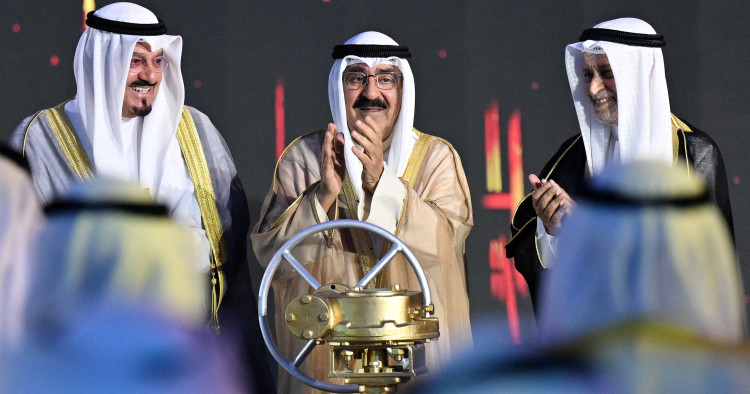Kuwait’s emir, Sheikh Mishal Al Ahmad Al Jaber Al Sabah, took his next step in governance without a parliament in place on June 1, when he appointed Sheikh Sabah Khalid Al Sabah as crown prince. The 71-year-old Sheikh Sabah has a long record of public service in Kuwait, including tenures as its prime minister and foreign minister.
Sheikh Sabah’s appointment comes less than a month since Sheikh Mishal took the step of dissolving the country’s National Assembly just weeks after the most recent round of parliamentary elections. Although the timing of the announcement suspending portions of the constitution and dissolving the parliament caught most observers off guard, the emir’s decision was not surprising. While Sheikh Mishal’s predecessor, Sheikh Nawaf, tried mollifying the legislature, Sheikh Mishal was not expected to follow suit. Indeed, in his speeches since becoming emir, Sheikh Mishal has been telegraphing his determination to take a harder line by calling on the parliament to get in line and prioritize the interests of the nation.
The appointment of the crown prince may have been one of the factors precipitating Sheikh Mishal’s decision. In particular, there were concerns that the parliament might take steps to try to prevent him from naming a new crown prince or demand concessions in exchange for approving his chosen successor. In his announcement dissolving the legislative body, the emir referred specifically to “some, unfortunately, [who] have interfered with the heart of the emir’s purviews and meddled in his choice of a crown prince.”
Despite the focus on elements of executive-legislative tension, the decision to dissolve the parliament goes to deeper issues of policymaking and Kuwait’s ability to keep in step with its Gulf neighbors on economic diversification and attracting foreign direct investment. On the surface, Kuwait’s economy is enviable. The Kuwaiti dinar is the highest-valued currency in the world, and Kuwait is routinely listed among the 25 richest countries in terms of gross national product per capita, according to the World Bank. Nevertheless, the outlook is challenging. The World Bank’s Macro Poverty Outlook (MPO) warned that the Kuwaiti economy decelerated in 2023, after a strong 2022 performance. It advised that Kuwait’s “economic forecast remains uncertain, clouded by geopolitical tensions, slowdowns in major economies, oil price fluctuations, and political gridlock on reforms, with the potential for political transformation from a change in government offering new prospects for reform.”
In presenting his package of economic and fiscal reforms to the National Assembly in January, Prime Minister Mohammad Sabah Al Salem declared that Kuwait could no longer “sustain a welfare state solely on depleted natural wealth.” The government’s Vision 2035 Plan seeks economic reforms, diversification, becoming a financial and commercial center, and increasing attractiveness for foreign investors in sectors including information technology, communications, renewable energy, electricity, water, tourism, healthcare, and education.
Nevertheless, in its May 2024 staff note, the International Monetary Fund (IMF) echoed the World Bank MPO findings, warning that “progress with fiscal and structural reforms has been held back by political gridlock between the government and parliament. Continued delays in fiscal and structural reforms due to political gridlock could give rise to procyclical fiscal policy and undermine investor confidence, while hindering progress towards diversifying the economy and enhancing its competitiveness. The new Public Debt Law should be passed expeditiously to ensure orderly fiscal financing while promoting local debt market development.”
In making his early May announcement about dissolving the parliament and suspending some provisions of the constitution, Sheikh Mishal alluded to the parliamentary gridlock, asserting, “Kuwait has been through some hard times lately … which leaves no room for hesitation or delay in making the difficult decision to save the country and secure its highest interests.” It’s likely that the public will go along with the emir’s decision, despite some grumbling, because of a shared frustration over the lack of effective policymaking. But in setting a timeframe of no longer than four years before restoring parliament, the clock is ticking for the 83-year-old Sheikh Mishal and his 71-year-old crown prince, Sheikh Sabah, to demonstrate that their proposed reforms can, indeed, put Kuwait on a more competitive footing with its Gulf peers. At the end of that period, it’s likely that the Kuwaiti public, which values its tradition of more robust democratic institutions than its neighbors, will clamor for a return of the elected National Assembly.
Amb. (ret.) Gerald Feierstein is a Distinguished Senior Fellow on US diplomacy at the Middle East Institute and Director of its Arabian Peninsula Affairs Program.
Photo by YASSER AL-ZAYYAT/AFP via Getty Images
The Middle East Institute (MEI) is an independent, non-partisan, non-for-profit, educational organization. It does not engage in advocacy and its scholars’ opinions are their own. MEI welcomes financial donations, but retains sole editorial control over its work and its publications reflect only the authors’ views. For a listing of MEI donors, please click here.













